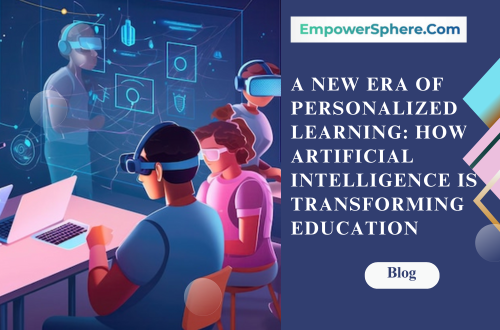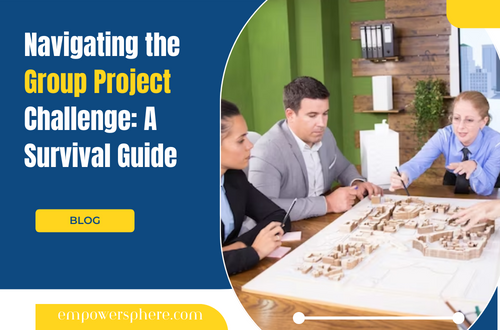Are you a devoted teacher hoping to have a more significant influence on the industry? Are you looking for a way to escape the monotonous classroom routine but still want to stay connected to the world of education? If yes, then a career as an educational consultant might be just what you need. In this post, we’ll explore how you can transition from being a classroom teacher to becoming a successful educational consultant.
What is an Educational Consultant?
Educational consultants have a significant impact on the education sector. They provide helpful advice to K-12 school districts, assisting them in effectively integrating technology into the classroom. Moreover, They create and manage professional development programs for teachers and work with businesses to provide goods targeted to educators’ needs. Educational consultants work in K-12 schools, educational entities, and tech enterprises.
How to Become an Educational Consultant?
As educational consultants, teachers can significantly impact student achievement while taking a break from traditional classroom teaching. This career path allows them to stay connected to the education field while exploring new ways to contribute to the learning community. Whether you see it as a temporary career move or a long-term transition, consulting provides a chance to refresh your teaching career and recharge your passion for education.
Become an Expert in Your Passion
If you want to establish yourself as an authority in a particular field of education, it’s crucial to delve deeply into the subjects that spark your interest. Whether it’s student achievements, emerging technologies, or hybrid learning, immersing yourself in your selected area of expertise is crucial. There are numerous effective methods to remain current with your field’s most recent trends and research.
- Engage on Social Media: To expand your knowledge and network, engaging on social media is a great idea. Consider joining platforms like Twitter, Google+, and Pinterest and following influential educators and experts in your field. By participating in education-related hashtags and conversations, you can learn from others.
- Read Relevant Blogs and Newsletters: Reading educational consultant blogs and newsletters dedicated to your area of interest is helpful. By staying informed about the latest research, best practices and innovative ideas, you can continue to grow in your field.
- Take Online Professional Development Courses: Online platforms like SOPHIA, Atomic Learning, and Scholastic offer a wide range of professional development tutorials. These courses can help you enhance your knowledge and skills, providing valuable resources to implement in your classroom or consulting work.
Seize Local and District Opportunities
Getting involved in your local educational consultant community is an excellent way to expand your network and gain valuable experience. Seek out opportunities within your neighborhood, district, and state education departments. By actively participating in initiatives to improve education at a broader level, you can contribute to meaningful changes while building your expertise. Consider the following opportunities:
- Join Committees and Task Forces: Become a member of building improvement committees, district task forces, curriculum revision committees, and assessment discussions. These platforms allow you to make a difference and provide opportunities for additional compensation.
- Collaborate with State Education Agencies: Keep an eye out for opportunities state education agencies offer. For example, you can contribute to developing new educational consultant frameworks or standards. Participating in such initiatives can have a lasting impact on education in your state.
Engage with Professional Associations
Joining local and professional associations is an excellent way to connect with like-minded educators and expand your professional network. These associations provide opportunities for professional growth, collaboration, and leadership development. Consider the following steps to maximize your involvement:

- Membership: Research and join associations that align with your interests and career goals. National associations like the National Science Teachers Association (NSTA), National Council of Teachers of Mathematics (NCTM), and National Council of Teachers of English (NCTE) have local chapters that offer valuable resources and networking opportunities.
- Attend Events: Start by attending local association events to meet educators in your area who share your passion. These events provide a platform for sharing best practices and discovering new ideas. As you gain experience, consider attending larger conferences like SXSW and ISTE to expand your network further.
- Volunteer and Serve: Many associations offer volunteering opportunities. By taking an active role, you can contribute to the organization’s mission and gain insights into upcoming events and opportunities. As you establish yourself within the association, consider pursuing leadership positions to enhance your influence in the education community.
Prioritize Continuous Professional Development
As an educator, staying on top of professional development is crucial for personal growth and maintaining your teaching credentials. Keeping track of your renewal clock hours fulfills a requirement and provides opportunities for self-improvement. Follow these tips for effective professional development:
- Identify Areas for Growth: Assess your professional development needs and identify specific areas to deepen your knowledge. This could include mental health, technology integration, reading and literacy, or other relevant topics.
- Attend Workshops and Online Courses: Invest time in attending workshops, courses and online tutorials that align with your areas of interest. Look for opportunities to learn from experts and gain practical strategies to implement in your classroom or consulting work.
- Collaborate with Informal Education Centers: Local museums, libraries, and other informal education centers often offer engaging and interactive events. Take advantage of these opportunities to explore new teaching methods and connect with other educators.
Participate in Conferences
Conferences are valuable platforms for professional growth, networking, and expertise sharing. They offer opportunities to learn from industry leaders, connect with fellow educators and gain visibility in your field. Follow these steps to make the most of conference experiences:
- Find Relevant Conferences: Stay updated on upcoming conferences through professional association newsletters and online searches. Consider attending seminars focused on your areas of interest, such as tech conferences or subject-specific gatherings like the National Science Teachers Association (NSTA) conference.
- Immerse Yourself: Immerse yourself in the conference experience by actively participating in sessions, workshops, and discussions. Engage with other attendees, share insights on social media using conference hashtags, and build connections with like-minded educators.
- Present at Conferences: Once you feel confident in your expertise, consider submitting proposals to speak at conferences. Presenting at conferences allows you to share your knowledge, grow your professional network and establish yourself as a thought leader.
Expand Your Network
Building a solid professional network is crucial for success as an educational consultant. Actively seek opportunities to connect with educators at all levels, administrators, and industry specialists. Consider the following strategies to expand your network:

- Maintain Contacts: Keep track of your contacts at conferences and events. Connect with them on social media platforms like Google+ and LinkedIn. Engage with their work by sharing, commenting, building relationships and demonstrating your expertise.
- Leverage Social Media: Utilize social media platforms to share your work and amplify your peers’ accomplishments. Join online communities, participate in Twitter chats and contribute to relevant discussions. Don’t hesitate to share your achievements and expertise to gain visibility and recognition.
- Network Upward: Expand your network beyond fellow classroom teachers. Connect with higher education faculty, administrators, and specialists in educational companies. Building relationships with individuals in influential positions can create opportunities for collaboration and consulting engagements.
- Find a Mentor: Seek mentors who have transitioned from the classroom to consulting. Online resources like the New Teacher Center and College Board can help you connect with experienced educational consultants. Learn from their experiences, seek guidance and leverage their network to facilitate your career transition.
Conclusion
Transitioning from the classroom to becoming an educational consultant is an exciting and fulfilling career move for passionate educators. By following these six intelligent steps, you can position yourself as an expert, gain valuable experience, expand your network and impact education. Embrace the opportunities that come your way, and remember that your expertise and dedication can shape the future of learning.
I am Charles Dickens, a strategic visionary in business management, driving growth and success through innovative strategies. As a content writer, I am known for my ability to craft compelling narratives that captivate audiences and convey complex ideas in an engaging manner.


